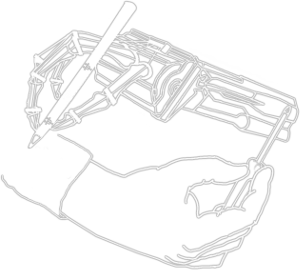Optimal training paradigms for motor task learning remain elusive due to the variability between human learners and the inherent challenges of modeling human skill and learning. The challenge point theory posits that based on a person’s current skill level, there exists an optimal difficulty level for a task that will maximize the person’s learning through practice. As the person’s skill level changes, so does this optimal difficulty level. The progression of tasks of varying difficulty follows a structure very similar to curriculum-based Reinforcement Learning (RL). This motivates our interest in studying human motor learning and applying principles of RL-based curriculum learning to design efficient training paradigms for novel motor tasks.
Drawing inspiration from existing literature, we have determined the need for a novel dynamic task which will act as a testbed for this project. Two testbeds have been developed, a physical task combining the Harmony Exoskeleton and virtual reality, and a virtual task that uses the participant’s webcam to track hand movement as they play a virtual web-based game. Among the many challenges of this project, the most interesting are assessment of human motor skill and curriculum design for a motor task. This project will involve several rounds of human subject experiments with both task platforms. The versatility and diversity of the two setups allow us to apply a wide range of interventions and task environments during training.
Collaborators:
Peter Stone, Learning Agents Research Group, UT Austin (https://www.cs.utexas.edu/~larg/index.php/Learning_Agents_Research_Group)









